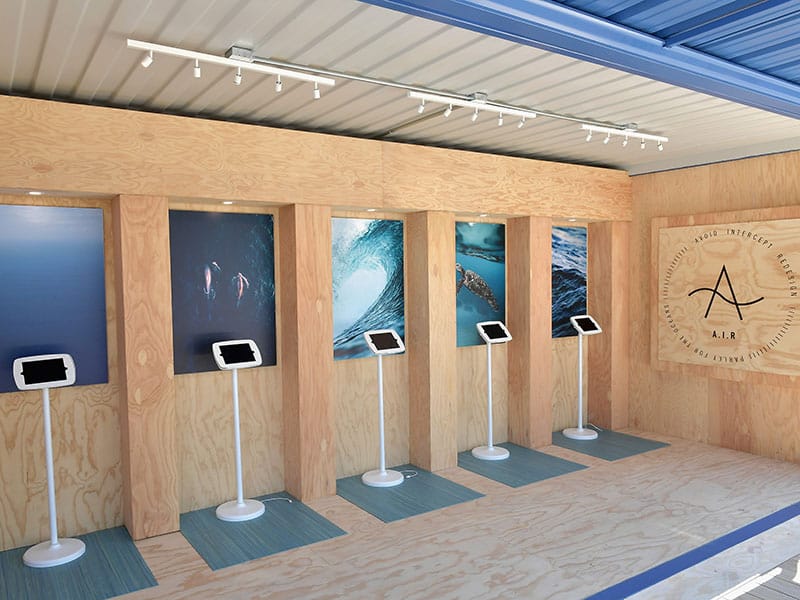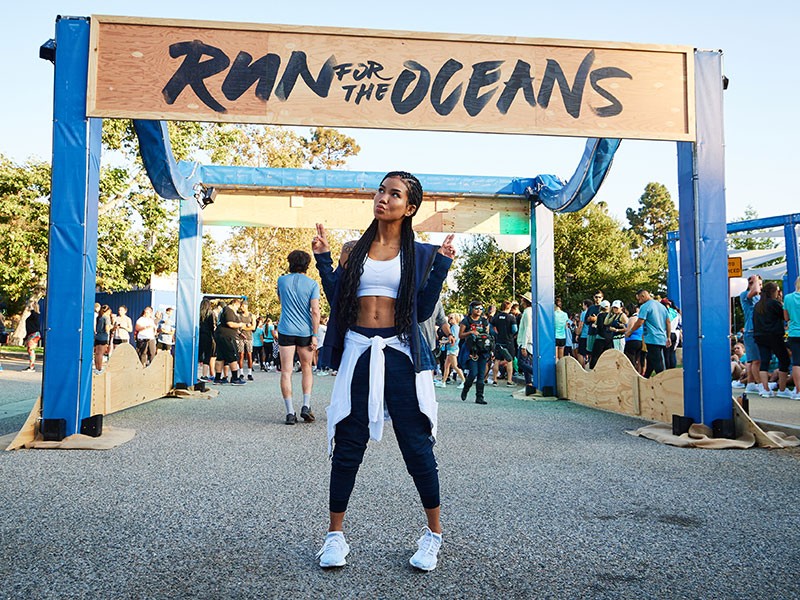“Plastic is a design failure,” says Parley for the Oceans founder.
Estimates show there are around 8 million metric tons of plastic making their way to the ocean each year, forming part of what is known as the five gyres. Add 80,000 estimated tons of plastic that have been floating in the ocean for more than 50 years, and we’re looking at an amount that equals 500 jumbo jets according to The Ocean Cleanup Foundation.
Marine plastic pollution is one of the biggest environmental issues in the world and with a decline in marine life comes a decline in human quality of life.
As activist Paul Watson, the founder of Sea Shepherd Conservation Society says, “If the oceans die, we die.”
Clearly this manmade dilemma has gotten out of hand and has raised a huge concern that calls for immediate action from consumers and big companies.
A myriad of activists, environmentalists and eco-friendly corporations have come together to help turn plastic mistakes around and encourage consumers to do their part. One of these partnerships is between Adidas and Parley for the Oceans.
Adidas and Parley for the Oceans
Parley is an organization and space where leaders, activists and creators unite on a mission to raise awareness and collaborate on projects that help stop the destruction of our fragile and beautiful ocean.
Adidas and Parley partnered up back in 2015 and took on a journey together to rid the world of plastic, raise awareness and change the way plastic is used today.
“We need to reinvent plastic,” said Cyril Gustch, Parley for the Oceans founder in an interview with Dezeen online magazine. “We have to redesign the material, and question some of the product categories. We want to invent our way out of this.”
Adidas and Parley’s collaboration is changing the fashion industry tremendously by creating innovative and effective footwear solutions that reuse plastic and reduce Adidas’ footprint, literally. Plastic transforms into an indestructible component that creates many commodities, but it shows that big corporations can be sustainable and substitute their use, as long as the aspiration to do so is present.
“It is an ongoing challenge, but we achieved the first step,” Gustch said in an interview with Dezeen online magazine. “Now we can replace new plastic with recycled marine plastic debris. We can create footwear and apparel products with it and we are ready to scale it up.”

“From threat to thread”- they utilized Parley Ocean Plastic, a textile made out of debris and recycled plastic retrieved from the ocean to create a new high-performance and eco-friendly shoe line.
But how is Adidas doing their part you may ask?
The fitness brand has not built a reputation for being the most eco-friendly. The good news, however, is that Adidas has committed to stopping their use of “virgin” plastics in its manufacturing process, removing plastic bags from thousands of retail stores (eliminating around 70 million bags to date), reducing water usage with apparel material suppliers, and increasing their conscious awareness around sourcing cotton.
Adidas senior design director Erman Aykurt explains how the company is dealing with these big changes in an interview with Surface Magazine.
“The low hanging fruit have been addressed, like phasing out packaging items, questioning substances, changing material strategies. Now it goes to the more complicated stuff,” Aykurt said. “What that actually means is a lot more R & D, and we will not be able to do that overnight. This is a very interesting moment in time where we’ve created the awareness out there, we’ve created the climate of change, but we don’t have the answers.
Adidas Running just released its limited edition UltraBOOST Parley and UltraBOOST X shoes which features an energy boost midsole and 95% Parley Ocean Plastic. Each pair prevents about 11 plastic bottles from contributing to marine plastic pollution.
And what better way to use new tennis shoes, than to run in them!
Run for the Oceans
As part of the collaboration, Adidas and Parley kicked off their annual 5K Run for the Oceans event in Temescal Gateway Park in Los Angeles last Friday. Bringing everyone together, from runners and pro athletes to celebrities and influencers, who ran for the cause.
Adidas and Parley will donate $1 for every kilometer that is logged through the Runtastic app, capping at $1 million to fund the Parley Ocean Plastic program in the Maldives.
This program will immerse and empower future generations to preserve and protect the ocean. Parley Ocean Plastic will educate and hold global marine expeditions to raise awareness and empower a new generation of ambassadors and activists.

MiLLENNiAL got the chance to participate and witnessed the inspiring and energetic movement while getting our sweat on, and so can you!
Run for the Oceans will continue its tour around the world and will be taking place in:
- London (June 17th)
- Barcelona (June 22nd)
- Berlin (June 22nd)
- Shanghai (June 23rd)
- Sao Paulo (June 24th)
- New York (June 27th)
- Milan (June 29th)
- Tokyo (June 29th)
- Chengdu (June 30th)
- Toronto (July 5th)
- Paris (July 8th)
Anybody can form part of the digital run for the rest of the month until July 8th and help raise money from home by logging into the Runtastic app when going out for a jog.
How You Can Reduce Your Plastic Footprint
Here are some easy but life changing ways you can take part in the mission to ‘save the ocean’ and reduce your plastic footprint. Reduce, Reuse and Recycle!
- Bring your reusable bags to the market
- Have your own reusable water bottle
- Forget straws, or use a reusable stainless-steel straw
- Bring your own coffee thermos to the coffee shop
- Choose cardboard over plastic, it’s easier to recycle
- Forget about disposable razors
- Get reusable cutlery, or use a spork
- Leave only your footsteps, clean after yourself and a bit more when going to the beach
Bottom line is, marine plastic pollution is one of the biggest concerns today. But many are waking up and making a change to turn this around. How are you committing to help save the ocean?
Let us know in the comments below!
